10 masterpieces of Arkhip Kuindzhi, creator of hypnotic landscapes
Categories: Art | Design and Architecture | Photo project | Society | World
By Vika https://pictolic.com/article/10-masterpieces-of-arkhip-kuindzhi-creator-of-hypnotic-landscapes.htmlKuindzhi's work is often called "magic" and "alchemy", and he himself was a researcher of metaphysics and a forerunner of impressionism.
Autumn 1880. Petersburg society speaks of an unprecedented event: an exhibition of just one painting. This has never happened before in Russia, and the line of people at the building of the Imperial Society for the Encouragement of Arts stretches for several blocks.
Everyone wants to see the new picturesque seascape "Moonlight Night on the Dnieper", for which the Grand Duke Konstantin Romanov paid a fabulous sum even before its completion. Meanwhile, its creator Arkhip Kuindzhi uses a marketing ploy: he closes all the windows in the room with curtains and shows the picture in the dark, directing a single beam of electric light at it. The effect is amazing. Spectators do not believe that such a “phosphorus” glow of moonlight on the water surface can be achieved using ordinary paints.
Kuindzhi is called a hoaxer and is accused of using hidden lighting. But of course, there is no backlight.
10 PHOTOS
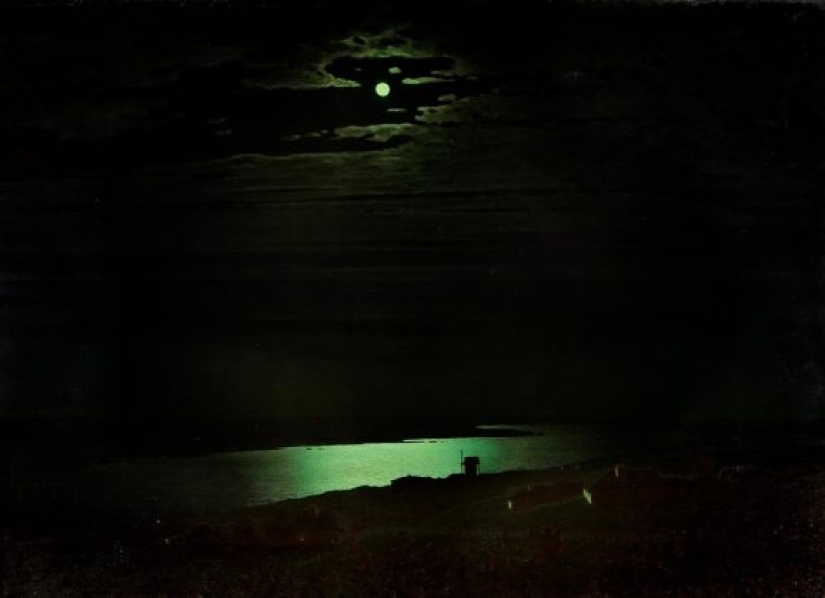
1. Moonlit night on the Dnieper, 1880
Kuindzhi painted his most famous works shortly after parting with the Wanderers (a group of realist artists who opposed academicism in art). And he managed to sell it to the Grand Duke even before the completion of the canvas: the writer Ivan Turgenev was so delighted with the work that he persuaded the prince to buy it. The latter even took it with him on trips: "Night" was exhibited for several days at the Sedelmeyer Gallery in Paris. There are several versions of the painting made by the artist when he realized the extent of his own popularity.
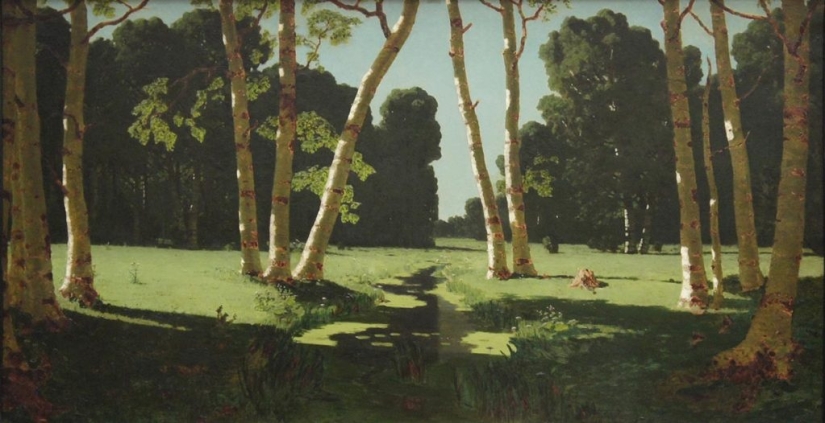
2. Birch Grove, 1879
"Birch Grove" was written a year before "Moonlight Night on the Dnieper", but already fully demonstrates Kuindzhi's main stylistic principle - spectacular chiaroscuro. Then the public had suspicions about the use of optical techniques, which provoked a scandal.
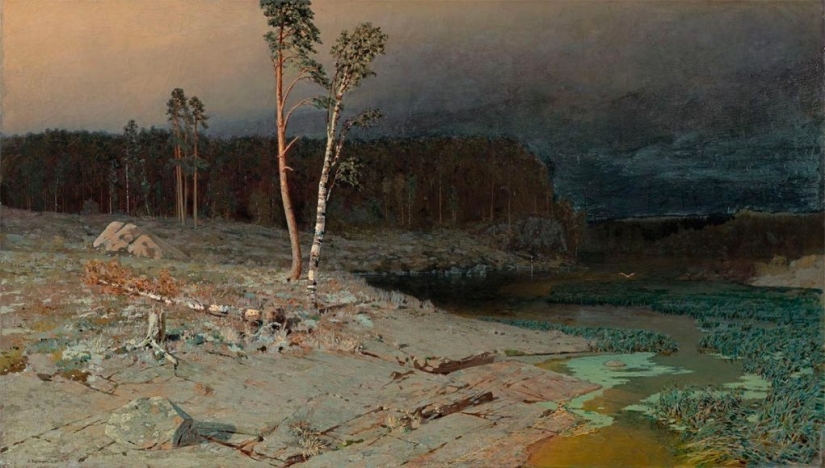
3. On the island of Valaam, 1873
Kuindzhi regularly visited the island of Valaam in Karelia, a favorite place for St. Petersburg landscape painters. This painting, bought by the collector and founder of the Tretyakov Gallery Pavel Tretyakov, marks the beginning of his fame as a serious artist. The style of the Wanderers is clearly visible - deliberate realism was very much appreciated by contemporaries.
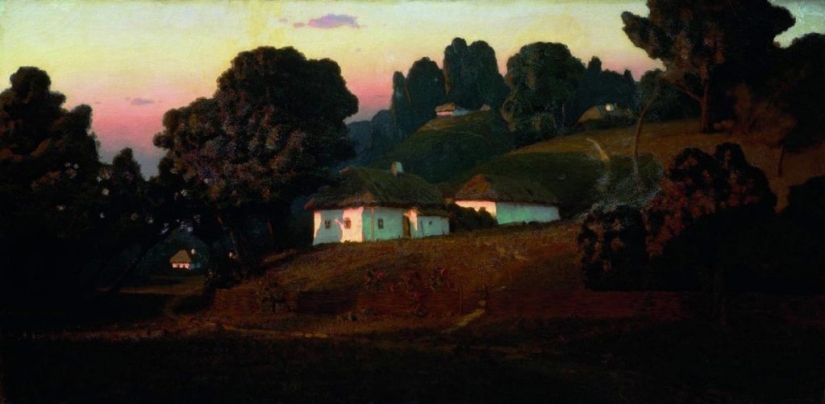
4. Evening in Ukraine 1878 (completed in 1901).
The artist worked on this painting for a total of 23 years. And he spent 20 of them involuntary seclusion, during which Kuindzhi did not show his work to anyone, even friends and family. It is not known for certain what made him "silence" at the peak of his fame, but many then believed that he was tired of the constant hype and criticism. The exhibition “Evenings in Ukraine” and three more paintings broke the “silence”.
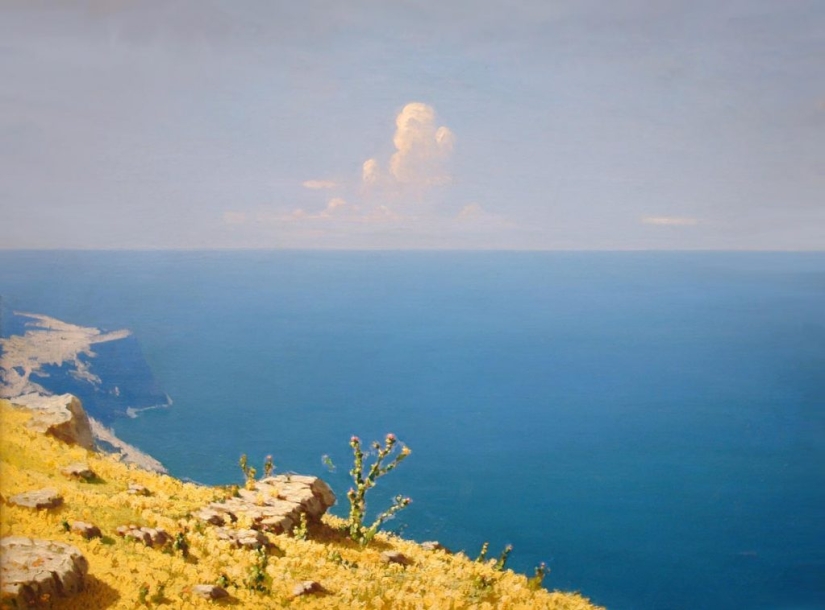
5. Sea. Crimea, 1898-1908
Kuindzhi is closely connected with Crimea, to which dozens of his works are dedicated. It was here that the future artist came in his youth, deciding to develop his passion for drawing: he was recommended as a student to the famous marine painter Ivan Aivazovsky, who lived in the Crimean seaside town of Feodosia. True, the great Aivazovsky spared no time but gave Kuindzhi a letter of recommendation. Already a well-known artist, Kuindzhi painted the "immersive, meditative" Sea. Crimea, in which the Crimean coastline is painted in rich colors.
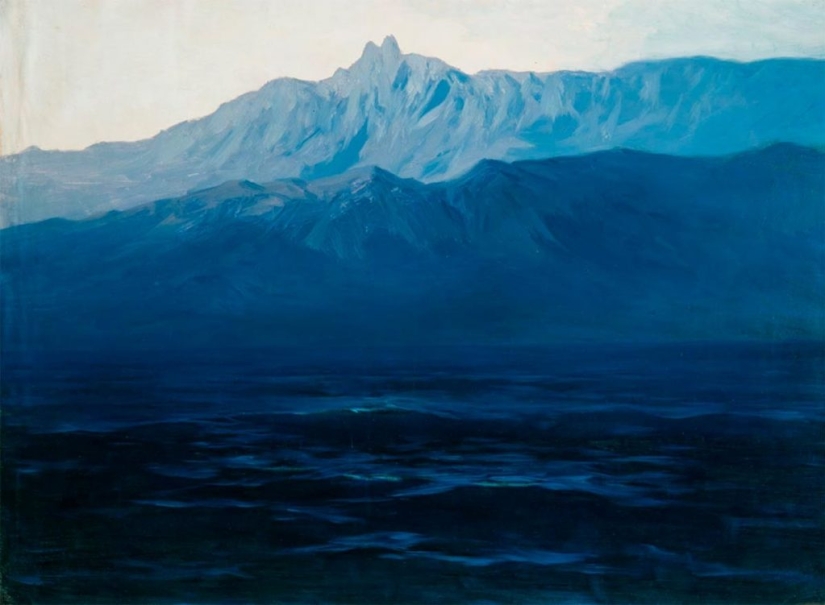
6. Ai-Petri. Crimea, 1890
Another of his Crimean landscapes is dedicated to Ai-Petri, a mountain range near Yalta and one of the symbols of the peninsula. In 2019, this painting was stolen from the Tretyakov Gallery in broad daylight in front of dozens of visitors. The man in overalls simply walked up to the canvas, took it off the wall, took it out of the frame, and walked out with it. Everyone was fooled by the composure of the thief: people sincerely believed that he was a museum employee. The next day he was detained, and the painting was returned to the museum.
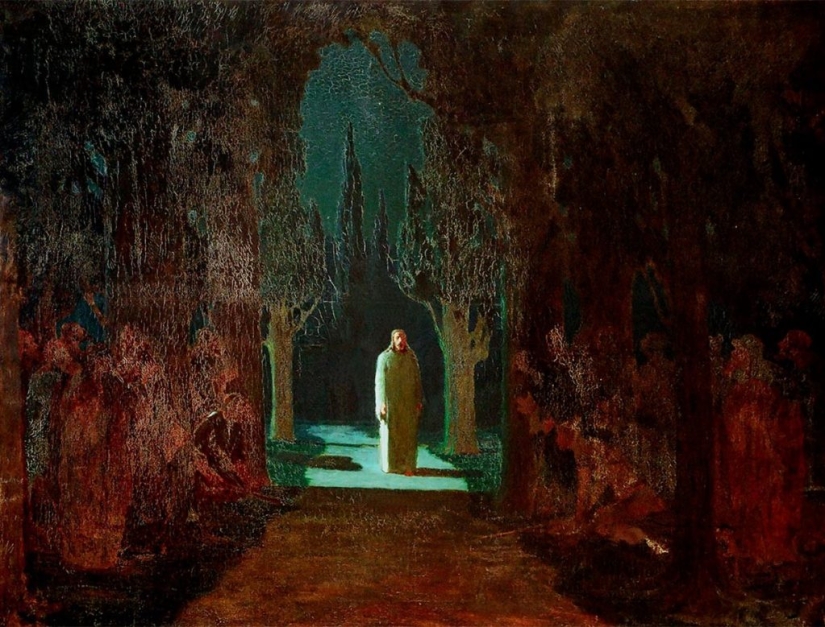
7. Christ in the Garden of Gethsemane, 1901
This is one of the four paintings that Kuindzhi decided to show after his "silence". This is perhaps the most philosophical and mysterious work of the artist and the only work on the biblical theme. But, as in all his work, the focus is not on the subject, but on light and color. Through it, without going into complex details, the artist reveals the drama of the situation. The figure of Christ flooded with moonlight breaks out of the darkness, the effect is strongly reminiscent of a moonlit night on the Dnieper.
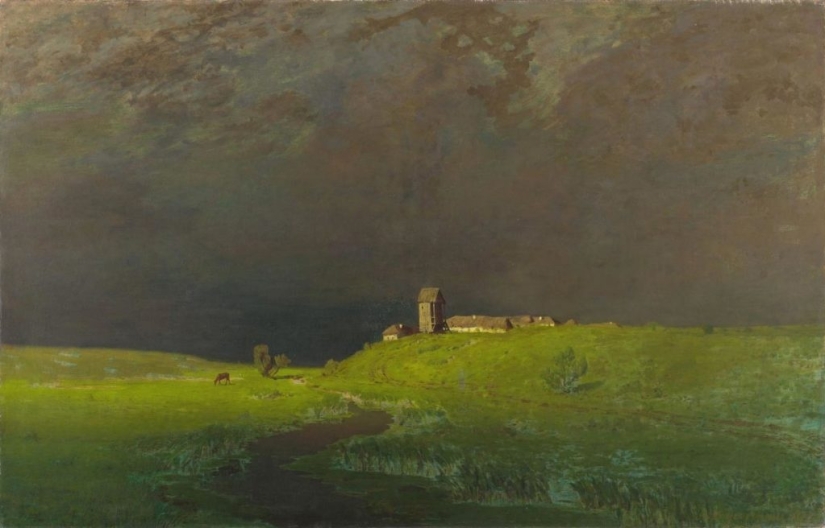
8. After the rain, 1879
The bright, temperamental contrast of thunderclouds with the silence and tranquility of the meadow accurately conveys the light atmosphere that occurs after a downpour.
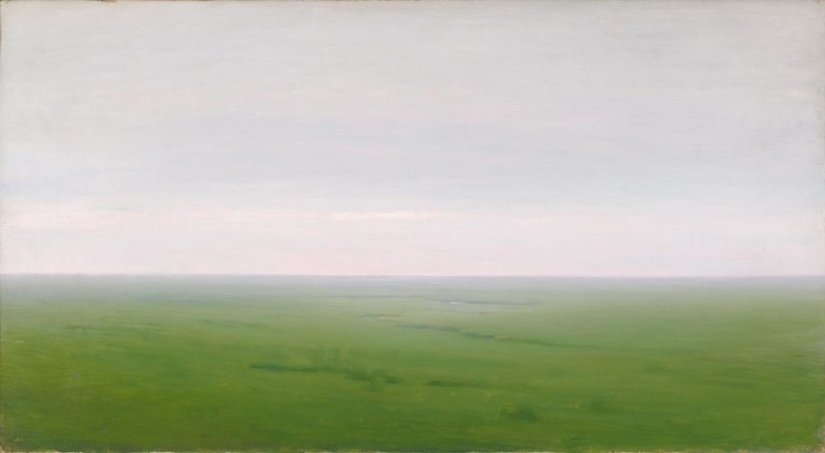
9. Landscape. Steppe, 1890-1895
Art historians note that his landscapes evoke almost sound and sensual associations in the viewer: whether it is a light morning wind, wet grass, or rarefied air after a thunderstorm.
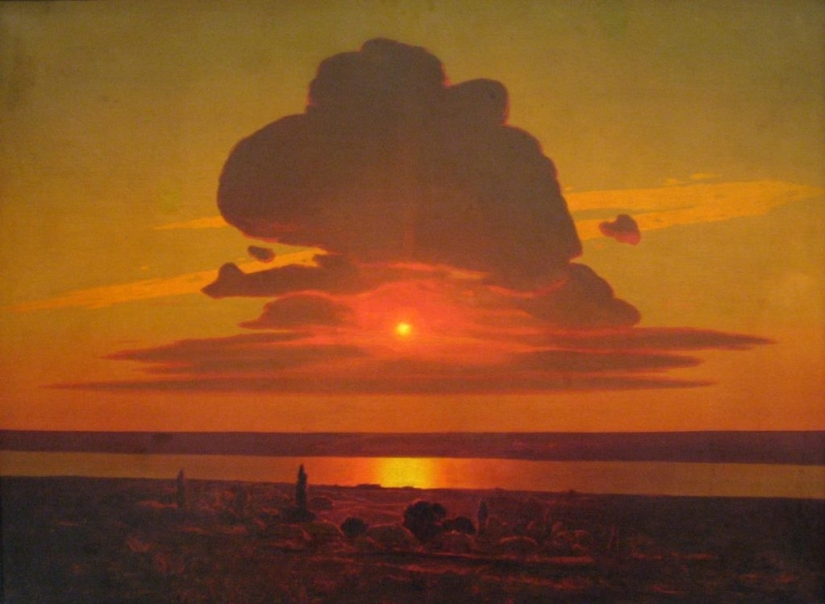
10. Red sunset, 1898-1908
One of the last great works of Kuindzhi. According to critics, the artist appears in this picture as a pagan worshiper of the sun. The canvas had a difficult fate: it was repeatedly resold before it ended up in the Metropolitan Museum of Art in New York.
Keywords: Masterpieces | Creator | Hypnotic landscapes | Alchemy | Art | Artists | Landscapes | Metaphysics | Impressionism
Post News ArticleRecent articles

It's high time to admit that this whole hipster idea has gone too far. The concept has become so popular that even restaurants have ...

There is a perception that people only use 10% of their brain potential. But the heroes of our review, apparently, found a way to ...
Related articles

A good designer can even banal things to make a work of art. Bad — on the contrary, spoil, and even problems will create. Here ...

Beautiful decoration of dishes is no less important than its taste. People first "eat" with their eyes, and only then try what is ...

In Slavic languages, there may be up to half of the known and familiar Russian words, but the rest will seem like a sudden surprise ...

New Year's is a time to surprise and delight loved ones not only with gifts but also with a unique presentation of the holiday ...